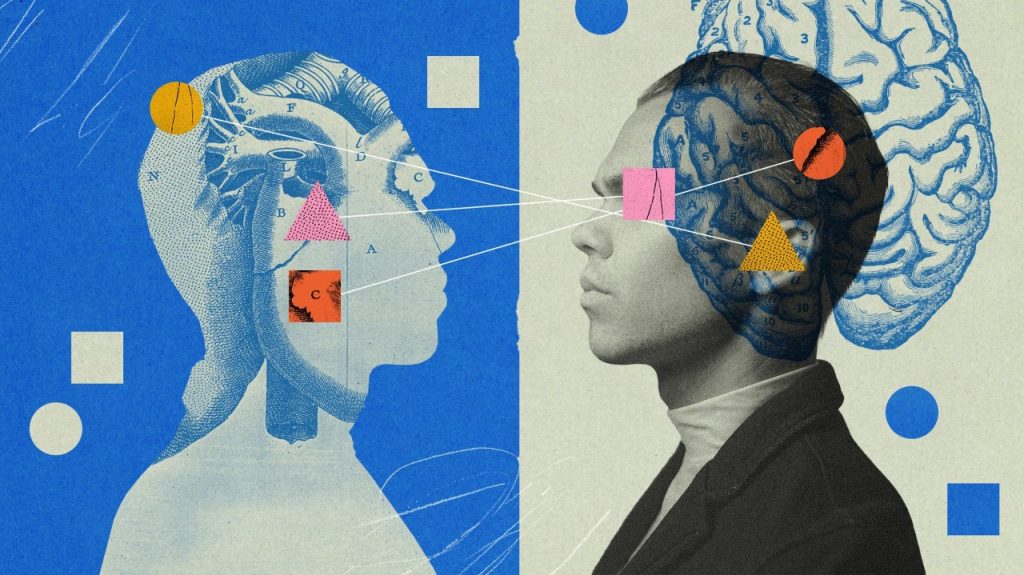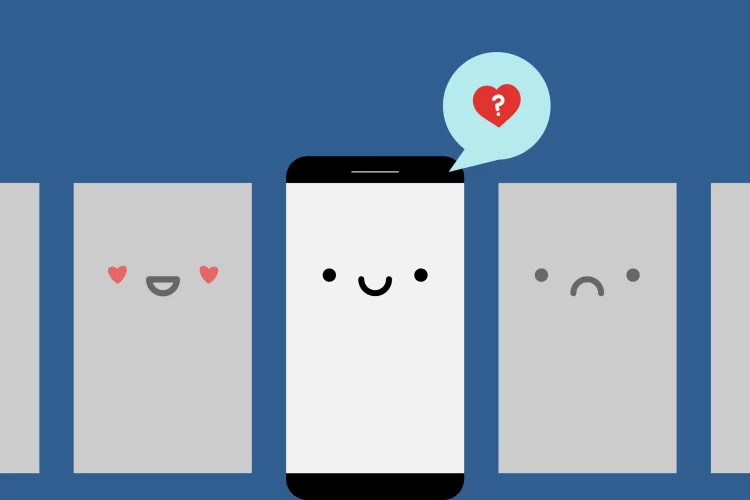The Digital Brain Meets Emotional Learning
As mental wellness takes center stage in both education and workplace culture, the demand for emotional intelligence (EI) is rising rapidly. But unlike IQ, which remains relatively stable, emotional intelligence is dynamic—it can be taught, refined, and elevated with intentional practice. Traditionally, EI development has occurred through interpersonal experience, therapy, and behavioral training. However, the digital age has introduced new frontiers for self-regulation and social-emotional growth. Neuroscience-based apps—designed with the brain’s emotional circuitry in mind—are offering fresh pathways for cultivating emotional intelligence. But can a smartphone truly help you become more empathetic, self-aware, and socially skilled? To answer that, we must examine the rise of neurotech in emotional education, the scientific mechanisms behind these innovations, and their real-world applications.
Understanding Emotional Intelligence and Its Neural Basis
Emotional intelligence encompasses five core areas: self-awareness, self-regulation, motivation, empathy, and social skills. Neuroscience tells us that these traits are rooted in specific brain regions—particularly the prefrontal cortex (for executive control and empathy), the amygdala (for emotional reactivity), and the insula (for interoceptive awareness). When individuals practice mindfulness, empathy exercises, or emotional labeling, they’re actively rewiring these neural circuits. Brain imaging studies show that people with high emotional intelligence tend to have stronger connectivity between their emotional (limbic) and rational (cognitive) brain centers. This plasticity—the brain’s ability to reorganize itself—is precisely what makes EI such a promising candidate for digital intervention. If structured correctly, apps can serve as interactive tools for neurocognitive training, simulating the emotional challenges of real life in a safe and trackable format.
Gamified Emotional Learning: Apps That Train the Heart and Mind
A major trend in the space is gamified emotional learning. Apps like Peekapak, Smiling Mind, and Mightier use storytelling, animation, and interactive challenges to teach users—particularly children and teens—how to identify and regulate emotions. These apps are not merely educational games; they are built on cognitive behavioral therapy (CBT) principles and developmental neuroscience. For example, Mightier integrates a wearable heart rate monitor that provides real-time biofeedback. As users play games that challenge frustration tolerance, their heart rate is tracked, and they are guided through breathing techniques to bring it down—reinforcing self-soothing skills. Over time, this repetitive exposure trains emotional regulation pathways. Peekapak, used in thousands of schools, blends narrative storytelling with reflective journaling, helping students recognize and process emotions. A study by the Committee for Children found that gamified social-emotional learning apps improved empathy, conflict resolution, and peer relationships in classroom settings. For adults, platforms like EQ Applied and Mood Meter encourage users to journal emotional experiences and receive tailored strategies for handling them, drawing from emotion labeling theory and neuropsychological models of affective forecasting.

Neurofeedback and Biohacking Emotional Resilience
Beyond games, neurofeedback is gaining traction as a potent tool for enhancing emotional intelligence. Apps like NeuroSky, Muse, and FocusCalm use EEG sensors to track brainwave activity during emotional and cognitive tasks. Users receive visual or auditory feedback indicating whether their brain is in a relaxed, focused, or stressed state. This feedback loop encourages users to learn how to shift their internal states—an essential component of emotional self-regulation. Muse, originally developed as a meditation aid, has evolved to become a brain-training platform, giving users real-time metrics on attention and calmness. Studies in the Journal of Cognitive Enhancement show that regular neurofeedback training can reduce emotional impulsivity and improve cognitive control. In a workplace context, apps like Emotiv are being used to enhance emotional awareness in leadership training, offering dashboards that show how team members emotionally respond to various scenarios. The promise of neurofeedback lies in its ability to turn subjective experiences—like feeling overwhelmed—into quantifiable data that can be managed proactively. However, neurofeedback apps require high-quality sensors and user discipline to be effective, and there are concerns about data privacy and overreliance on external feedback for internal growth.
Real-World Impact: Schools, Workplaces, and Clinical Use
The true test of any neuroscience-based app lies in its real-world efficacy. In educational environments, the integration of apps like ClassDojo and RethinkEd has demonstrated measurable gains in student behavior, emotional articulation, and peer interactions. In a controlled study, classrooms using ClassDojo for emotional learning saw a 30% improvement in conflict resolution within six weeks. In workplaces, platforms like BetterUp and Emotional Check-In have been adopted for leadership coaching and team dynamics improvement. These tools help employees identify emotional bottlenecks, enhance communication, and reduce burnout. According to a 2023 survey by Deloitte, companies that implemented emotional intelligence training via apps reported a 22% increase in employee engagement. Clinically, EI apps are being used as adjuncts in therapy, particularly for individuals with autism spectrum disorder (ASD), ADHD, and anxiety disorders. The use of apps like ReFlex in neurodivergent populations helps bridge the gap between therapeutic sessions and real-time emotional experiences. Still, results vary widely depending on the app’s scientific rigor, user engagement, and integration into broader therapeutic or developmental frameworks.
Limitations, Challenges, and Ethical Considerations
Despite the exciting potential of neuroscience-based EI apps, challenges remain. First, the quality of content varies dramatically—while some apps are built on evidence-based principles and validated through peer-reviewed studies, others are driven more by market trends than neuroscience. Second, many users abandon emotional training apps due to a lack of immediate rewards or emotional discomfort triggered by self-reflection. Developers must balance challenge with encouragement, much like a skilled therapist. Third, ethical concerns around data privacy loom large. Emotional states, neural patterns, and biometric data are deeply personal, and not all app developers offer transparent data governance. Furthermore, accessibility is an issue—many of these apps require wearables or subscriptions, creating a digital divide in who benefits from emotional tech. Finally, there’s a philosophical tension: can emotional intelligence truly be cultivated through screens? Critics argue that human connection, not digital simulation, remains the gold standard for emotional growth. While apps can reinforce learning, they must not replace real-life social interactions or the nuanced feedback of human empathy.
Integrating Neuroscience-Based Tools Into Holistic Development
For these apps to reach their full potential, integration is key. Emotional intelligence does not thrive in isolation—it must be nurtured in dynamic, interpersonal environments. Schools and workplaces should view EI apps not as replacements for human-led programs but as tools to complement them. Therapists can use neurofeedback or mood-tracking data to inform their sessions, while educators can use gamified tools to reinforce classroom discussions on empathy and conflict. In the future, we may see adaptive emotional intelligence platforms that evolve with the user, incorporating biometric feedback, personality assessments, and contextual AI to provide increasingly personalized interventions. Collaboration between neuroscientists, educators, clinicians, and developers is essential to ensure these tools are ethically sound, culturally sensitive, and grounded in real science.
Conclusion: A Promising—but Complementary—Future for EI Apps
Neuroscience-based apps offer a promising, accessible way to practice emotional intelligence in the modern world. With tools that gamify emotion regulation, provide real-time neurofeedback, and encourage reflective self-awareness, users have unprecedented access to emotional growth resources. But like all tools, their impact depends on how they are used. Emotional intelligence is deeply human, shaped by experience, culture, and relationships. While an app can spark awareness and practice, true emotional maturity is forged in the messy, unpredictable beauty of real life. These digital platforms are best seen not as replacements, but as powerful complements to holistic emotional development. With the right blend of science, empathy, and ethical design, neuroscience-based apps may well become essential allies in our lifelong journey toward emotional intelligence.







































